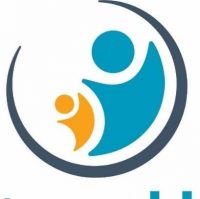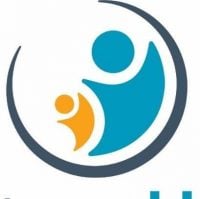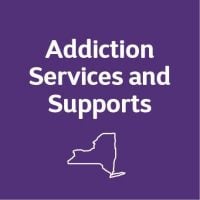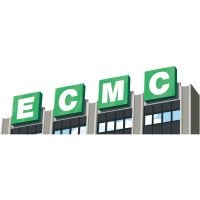CASAC
Drug Rehab Center in Dunkirk, New York
- Opioid Addiction
- Alcoholism
CASAC is an accredited and state-adherent outpatient clinic in Dunkirk, New York that provides evidence-based treatments and specialized services for individuals with alcoholism and opioid addiction.
About CASAC in New York
CASAC is an outpatient clinic in Dunkirk, New York that focuses on providing evidence-based care for those struggling with alcoholism and opioid addiction. CASAC offers a wide variety of addiction treatment services, including individual and family therapy, as well as life skills training to help patients successfully transition back into healthy, lived-focused lifestyles. CASAC is accredited by the state and adheres to the highest clinical standards when providing addiction treatment.
At CASAC, the team of highly qualified therapists specialize in addressing addiction at its source by providing a supportive environment where clients can feel understood and validated. The clinical staff at CASAC works to customize treatment plans based on each individual's needs and preferences, drawing on evidence-based practices and integrative techniques to ensure that clients attain long-lasting and positive recovery outcomes. By addressing co-occurring disorders and modulating behaviors to help bring about change, CASAC allows clients to find sustained sobriety and wellbeing.
Genders
Ages
Modality
Additional
Accreditations
State License
Conditions and Issues Treated
Opioid addiction treatment should be done in a medically supervised drug rehab. While taking opioids, users will typically use other substances to enhance the effects of opioids or to reduce the adverse effects of opioid use. Opioid addiction treatment will include detoxification and drug rehab counseling to help both the user and their loved ones learn how to live a successful sober lifestyle.
Treatments such as methadone, buprenorphine, and naltrexone are three medications that can help treat opioid addiction. These drugs work on the brain’s pleasure center and reduce cravings and the effects of illicit opioids such as heroin. These drugs can be either given orally or by injection. Individual drug rehab counseling sessions can be helpful to discuss any questions or concerns with the drug treatment program. This counseling will also help the user set goals for when they finish drug rehab.
Opioid addiction recovery is a long process. Many of the changes to the brain caused by opioid use cannot be undone, but with time and the proper treatment, a person can return to normal function. After detox, treatment will include drug rehab counseling and entering a halfway house or sober living community. Aftercare is critical to long-term recovery, as it helps the user avoid relapsing and entering back into drug rehab.
Levels of Care Offered
This center offers a variety of custom treatment tailored to individual recovery. Currently available are Outpatient, with additional therapies available as listed below.
“Outpatient treatment is ideal for those who have a lower intensity addiction. It’s also suitable for those with a supportive environment and those on a tight budget.
Outpatient treatment can be considered the lowest intensity level of addiction treatment. It is ideal for early phase addiction or lower intensity addictions. It may involve weekly sessions instead of daily. Peer group support, 12-step programs, and individual counseling may still be used and anti-addiction medication.
Therapies & Programs
No single treatment works for all addicts; therefore, the goal of treatment and therapy should be to find what works best for each individual. Some people requiring addiction treatment may only need a few weeks of inpatient care. Others will require long-term residential care. Tolerance and withdrawal levels vary from person to person and thus affect the intensity of the treatment needed.
If an individualized approach to treatment and therapy is not offered, addicts may fail to reap benefits from their efforts. Professionals must customize plans according to their patient’s needs, limitations, and strengths. The goal of all forms of addiction treatment should be for addicts to find healthy ways to cope with their addiction and its underlying causes.
The therapies usually include siblings, children, and parents who are involved in their daily lives. These sessions are vital because they address past issues that may have hampered an addict’s or alcoholic’s recovery and provide support at a crucial time!
One of the most critical aspects of family therapy is helping addicts’ loved ones see their situation in a new light. It’s also one of the most challenging things a family can do when a loved one struggles with addiction or alcoholism.
Life skills training is beneficial for addicts in recovery because it helps them learn how to take care of themselves and improve their quality of life, which can promote feelings of purpose and motivation.
This type of treatment works by teaching individuals life-enhancing skills that support positive living, including:
- Healthy lifestyle habits
- Skills to effectively manage stress
- Effective communication skills to help them get their needs met without turning to drugs or alcohol
- Money management and budgeting skills so they can continue to take care of themselves after treatment ends.
Payment Options Accepted
For specific insurance or payment methods please contact us.
Additional Details
Specifics, location, and helpful extra information.
Dunkirk, New York 14048 Phone Number(716) 366-4623 Meta DetailsUpdated November 25, 2023
Staff Verified
CASAC Patient Reviews
There are no reviews yet. Be the first one to write one.
Dunkirk, New York Addiction Information
More than 2 million New Yorkers are currently suffering from some type of substance abuse and many of those are minors. Alcohol abuse, in particular, is prevalent among those underage. As a result of the high prices and regulation of prescription drugs, many New Yorkers turn to heroin instead. This has led to a serious heroin epidemic in the state.
Dunkirk, NY, is a small city located in Chautauqua County. In 2015, there were 23 overdose deaths in Dunkirk. That's an alarming rate of 8.5 overdose deaths per 100,000 people. And it's only getting worse. In 2016, there were 32 overdose deaths in Dunkirk. That's an increase of 39% in just one year. Many drug treatment options are available for someone looking to get sober in Dunkirk, New York.
Treatment in Nearby Cities
- Peekskill, NY (290.6 mi.)
- Haverstraw, NY (290.5 mi.)
- Albion, NY (78.1 mi.)
- Farmington, NY (108.5 mi.)
- North Collins, NY (21.3 mi.)
Centers near CASAC
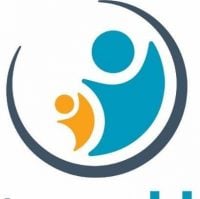
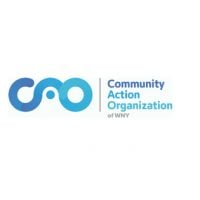

The facility name, logo and brand are the property and registered trademarks of CASAC, and are being used for identification and informational purposes only. Use of these names, logos and brands shall not imply endorsement. RehabNow.org is not affiliated with or sponsored by CASAC.


